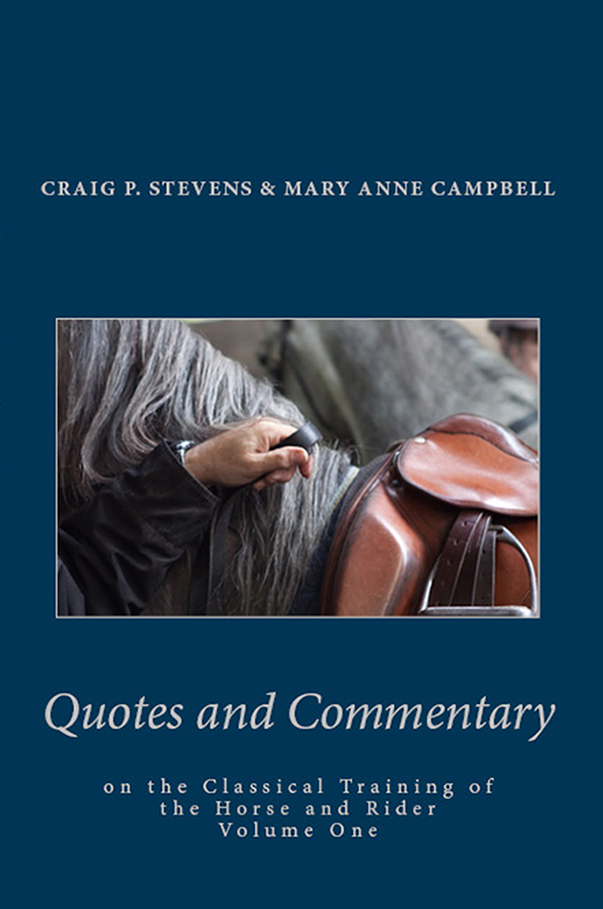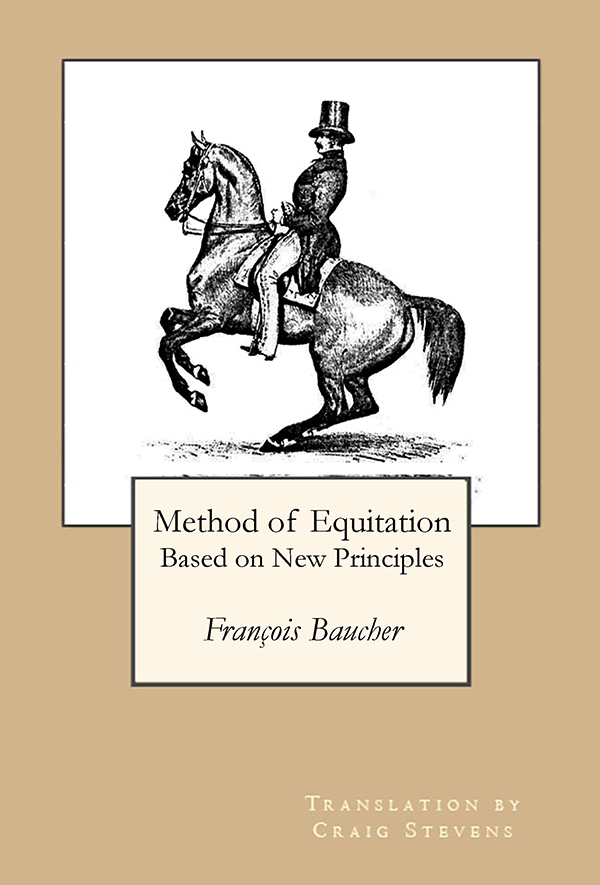Phone visitors, please scroll down to find links to purchase Method of Equitation, Quotes and Commentary, or both together. Thank you!

The FEA library
publications on the ancient art of classical equitation
At F.E.A. we are committed to preserve the old voices in training, both contemporary and historical, that are disappearing under the weight of modern competitive culture.
To study the masters who came before the present era a scholar must learn not only the language in which the material was written, but also must have dictionaries contemporaneous with the writing, and must know the classical methods from that area so that the tactile understanding infuses the linguistic representation with authenticity and life.
Our translators are trainers who rely on not only dictionaries, but the horse itself, to test their understanding.

“Quotes and Commentary”
A collection of quotations from masters of training, spanning thousands of years. Each quotation is followed by commentary from two classical trainers. Craig P. Stevens, a classical master who has trained many horses of varying breeds from the start to haute ecole, and Mary Anne Campbell, a clinician and instructor who, with Craig, directs their classical riding academy in Snohomish Washington. Craig’s comments come from the trainer’s side, Mary Anne’s from the instructor’s side, and together (as at their school) we find a rather lovely balance between the horse and rider centered questions at the heart of equitation.
Purchase "Quotes and Commentary"
Purchase Both Books Together
Contact us here for larger orders, or with any questions.
François Baucher: “Method of Equitation”
Translated from the French by trainer Craig Stevens. Over the course of his lifetime the French master François Baucher revised and republished his opus “Méthode d’équitation basée sur de nouveaux principes” no fewer than 14 times. An English translation of the 8th edition has been out for some time. This is a translation of the 14th edition, which was published in 1874, the year after Baucher died. It is unique in that this later edition is Baucher’s final writing on this comprehensive work. We see here a mature Baucher, a master trainer who has developed himself throughout his lifetime as an artist, and has had time to reflect on his training and teaching.
